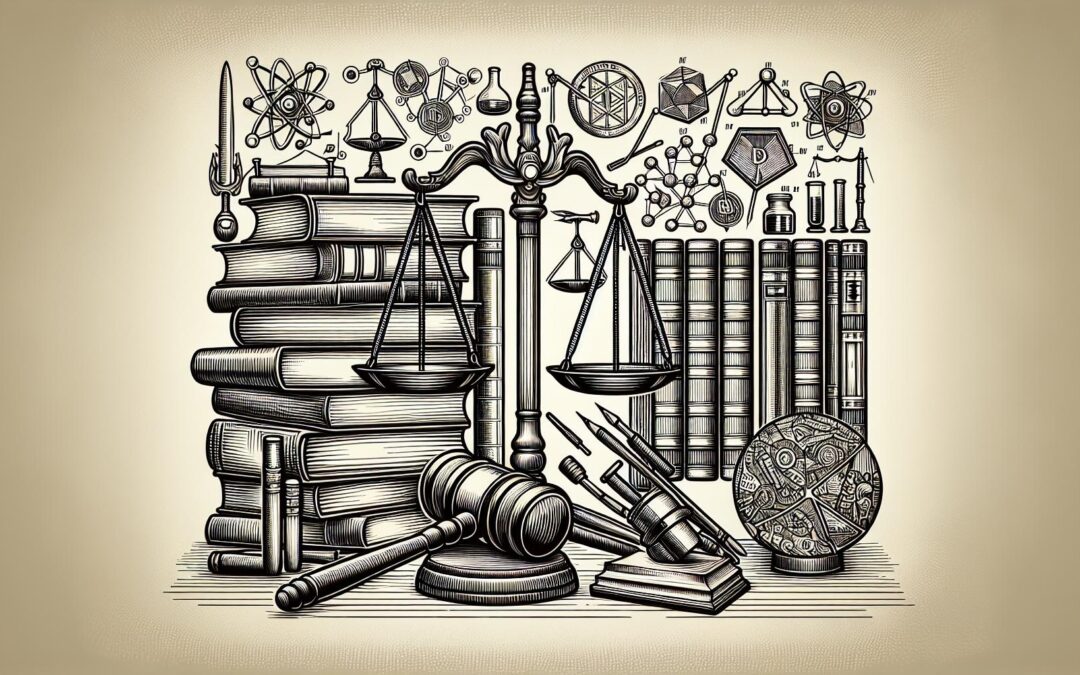In the world of intellectual property (IP), it is essential to understand the various terminologies associated with it. One such term that holds significant importance is “expired registration.” To gain a comprehensive understanding, let’s delve into the realm of intellectual property and its various facets.
Understanding Intellectual Property: A Brief Overview
Intellectual property refers to creations of the mind, such as inventions, literary works, artistic expressions, designs, and symbols, used in commerce. It is essential to protect these creations to encourage innovation and creativity. Intellectual property rights provide legal recognition and protection to the owners, enabling them to reap the benefits of their creation.
There are several types of intellectual property, each serving a particular purpose and offering specific rights to the owner. Understanding the importance of intellectual property is crucial in safeguarding the interests of creators and innovators.
The Importance of Intellectual Property
Intellectual property plays a vital role in promoting innovation, creativity, and economic growth. It provides creators and inventors with an exclusive right to their work, ensuring they can profit from their efforts and enjoy a competitive advantage in the marketplace. By protecting intellectual property, society stimulates the creation of new ideas, products, and technologies, fostering a culture of innovation.
Fostering a culture of innovation is not only beneficial for individual creators and inventors, but also for society as a whole. When intellectual property is protected, it encourages individuals and businesses to invest in research, development, and creativity, knowing that their efforts will be rewarded and protected by law. This, in turn, leads to the advancement of technology, the creation of new industries, and the generation of employment opportunities.
Moreover, intellectual property rights promote fair competition and discourage unauthorized use or exploitation of someone else’s work. This encourages individuals and businesses to respect and honor the rights of others, fostering an environment of collaboration and mutual respect. By respecting intellectual property rights, society ensures that creators and innovators continue to produce valuable and original works, benefiting everyone.
Different Types of Intellectual Property
There are four primary types of intellectual property:
- Patent: A patent provides exclusive rights to an inventor for a limited period, typically 20 years, in exchange for disclosing their invention to the public.
- Trademark: A trademark is a distinctive sign, such as a logo or a name, used to identify and differentiate products or services from others in the marketplace.
- Copyright: Copyright protects original artistic, literary, and musical works, giving their creators exclusive rights for a specific period of time.
- Trade Secret: A trade secret refers to confidential business information that provides a competitive edge, such as formulas, manufacturing processes, and customer lists.
Each type of intellectual property serves a unique purpose and offers specific rights to the owner. Patents, for example, are essential for protecting inventions and encouraging inventors to share their knowledge with the public. Trademarks, on the other hand, help consumers identify and distinguish between different products or services, ensuring they can make informed choices. Copyrights safeguard the rights of authors, artists, and musicians, allowing them to control the reproduction and distribution of their works. Trade secrets, although not publicly disclosed, protect valuable business information that gives companies a competitive advantage in the market.
Understanding the different types of intellectual property is crucial for creators, inventors, and businesses to navigate the complex landscape of intellectual property rights. By understanding their rights and responsibilities, individuals and organizations can make informed decisions about how to protect and leverage their intellectual assets.
The Concept of Expired Registration in Intellectual Property
Expired registration is a term commonly used in the context of intellectual property. But what does it really mean?
When we talk about expired registration in intellectual property, we are referring to the expiration of the legal protection granted to a specific intellectual property right. It signifies that the relevant registration, such as a patent, trademark, copyright, or trade secret, is no longer in force.
Intellectual property registrations have limited durations, varying depending on the type of IP. Once the registration expires, the owner loses the exclusive rights associated with it, and others may use or reproduce the creation without infringing any rights.
But let’s dive deeper into the implications of expired registration and understand how it can affect intellectual property owners.
What Does Expired Registration Mean?
Expired registration is a crucial concept in the realm of intellectual property. It is the point at which the legal protection granted to a specific intellectual property right ceases to exist. This can occur due to the expiration of the registration’s term or failure to renew the registration in a timely manner.
For instance, let’s consider a patent. Patents are granted for a fixed period, typically 20 years from the filing date. Once this period elapses, the patent registration expires, and the invention becomes freely available for public use. This means that anyone can now manufacture, sell, or use the patented invention without seeking permission from the original patent holder.
Similarly, trademarks, which serve as distinctive signs for goods or services, have registration terms that need to be renewed periodically. If a trademark’s registration is not renewed, it expires, and the exclusive rights to use that mark are lost. This opens the door for other businesses to adopt similar or identical marks, leading to potential brand confusion and dilution.
Expired registration in copyright can also have significant implications. Copyright protection typically lasts for the life of the author plus a certain number of years. Once the copyright registration expires, the work enters the public domain, allowing anyone to reproduce, distribute, or modify it without seeking permission.
Trade secrets, on the other hand, can lose their protected status if they are no longer kept confidential. Once the information becomes publicly known, it is no longer considered a trade secret, and the registration, if any, becomes irrelevant.
The Implications of Expired Registration
Expired registration can have significant implications for the owner of the intellectual property. With the expiration of the registration, the owner loses the legal protection that previously prevented others from using or benefiting from their creation.
For example, if a trademark’s registration expires, other businesses can now use a similar or identical mark to identify their products or services, leading to brand confusion and dilution. This can have a detrimental impact on the original trademark owner’s reputation and market position.
Likewise, if a patent registration expires, the invention becomes part of the public domain, allowing others to replicate and utilize the invention freely. This can result in increased competition and diminished market exclusivity for the original patent holder.
It is crucial for intellectual property owners to stay vigilant about their registration expiration dates and take appropriate action to maintain their rights, as failure to do so can have severe consequences. This may involve filing renewal applications, paying renewal fees, or taking necessary steps to protect trade secrets.
Additionally, it is important to note that even after registration expiration, certain rights may still exist under other intellectual property laws or doctrines. For example, in some jurisdictions, trademark owners may still have common law rights or rights based on prior use, even if their registration expires.
In conclusion, expired registration in intellectual property signifies the loss of legal protection and exclusive rights associated with a specific intellectual property right. It is essential for intellectual property owners to understand the implications of expired registration and take proactive measures to safeguard their creations.
Key Intellectual Property Terminologies
Before delving deeper into the process of handling expired registration, let’s familiarize ourselves with some essential intellectual property terminologies:
Patent
A patent is a legal protection granted to an inventor, giving them exclusive rights to their invention for a specified period. It prevents others from making, using, selling, or importing the patented invention without permission.
Trademark
A trademark is a recognizable sign, symbol, or expression used to distinguish products or services from those of others. It represents the brand identity and helps consumers identify and differentiate between various offerings in the marketplace.
Copyright
Copyright safeguards original creative works, such as books, music, artwork, and films, from being copied, distributed, or used without authorization. It grants exclusive rights to the creators, encouraging and rewarding their artistic expression.
Trade Secret
A trade secret is confidential business information that provides a competitive edge. It typically includes formulas, manufacturing processes, designs, customer lists, or any other valuable information that is not generally known or easily discoverable by competitors.
The Process of Intellectual Property Registration
Registering intellectual property is a crucial step in securing legal protection and exclusive rights to your creations. Let’s explore the steps involved in the registration process:
Steps in Registering Intellectual Property
The specific steps for registering intellectual property may vary depending on the type of IP and the jurisdiction. However, the general process typically includes the following:
- Research and determine the type of intellectual property you want to protect.
- Perform a comprehensive search to ensure that your creation or invention does not infringe upon existing IP rights.
- Prepare the required documentation and application forms.
- Submit the application to the relevant intellectual property office or agency.
- Pay the necessary fees associated with the registration process.
- Wait for the intellectual property office to process your application.
- Upon approval, you will receive an official registration certificate.
Costs Associated with Intellectual Property Registration
The costs associated with registering intellectual property can vary depending on factors such as the type of IP, the jurisdiction, and whether you choose to seek legal assistance. It is advisable to budget for the application fees, legal fees (if any), and potential maintenance fees required throughout the registration duration.
How to Handle Expired Registration
If your intellectual property registration is approaching its expiration date or has already expired, it is crucial to take prompt action to maintain your rights. Here’s what you can do:
Renewing Your Intellectual Property Registration
To renew your intellectual property registration, you typically need to follow a renewal procedure outlined by the relevant intellectual property office or agency. This procedure may involve submitting renewal forms, paying renewal fees, and providing the necessary documentation to prove your continued interest in protecting your creation.
It is crucial to be vigilant about renewal deadlines to avoid inadvertently losing your intellectual property rights. Failure to renew in a timely manner can result in the irrevocable loss of your exclusive rights and leave your creation vulnerable to unauthorized use.
Consequences of Not Renewing Registration
Not renewing your intellectual property registration can have severe consequences. As mentioned earlier, the expiration of registration eliminates the legal protection and exclusive rights associated with your creation. This leaves your intellectual property susceptible to unauthorized use, reproduction, or exploitation by others. Losing these exclusive rights may also affect your ability to enforce your intellectual property rights in case of infringement.
In conclusion, understanding intellectual property terminology, such as expired registration, is crucial for creators, innovators, and businesses alike. Mindful protection and management of intellectual property rights are essential to reap the benefits of your creations, sustain a competitive advantage, and encourage a culture of innovation in society.











